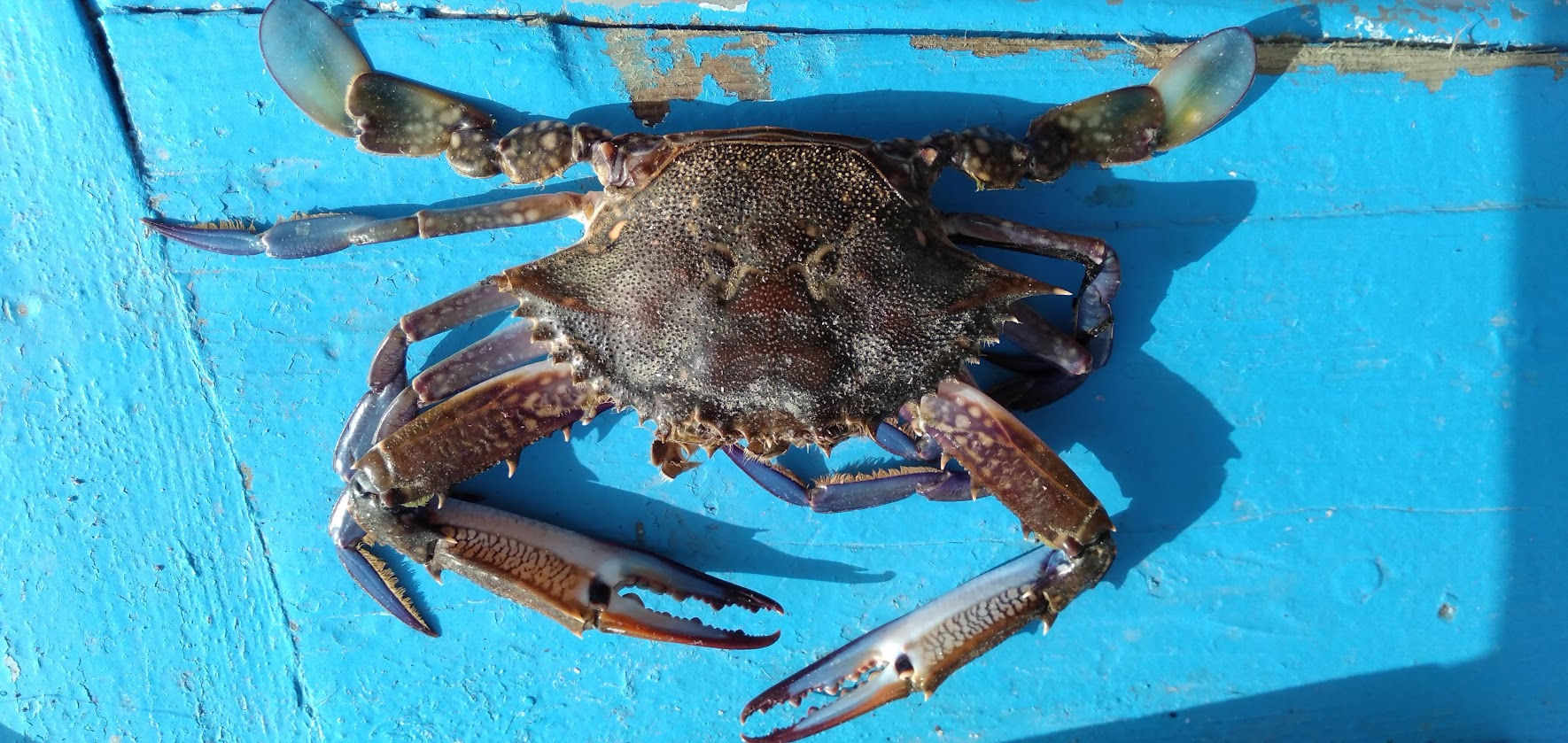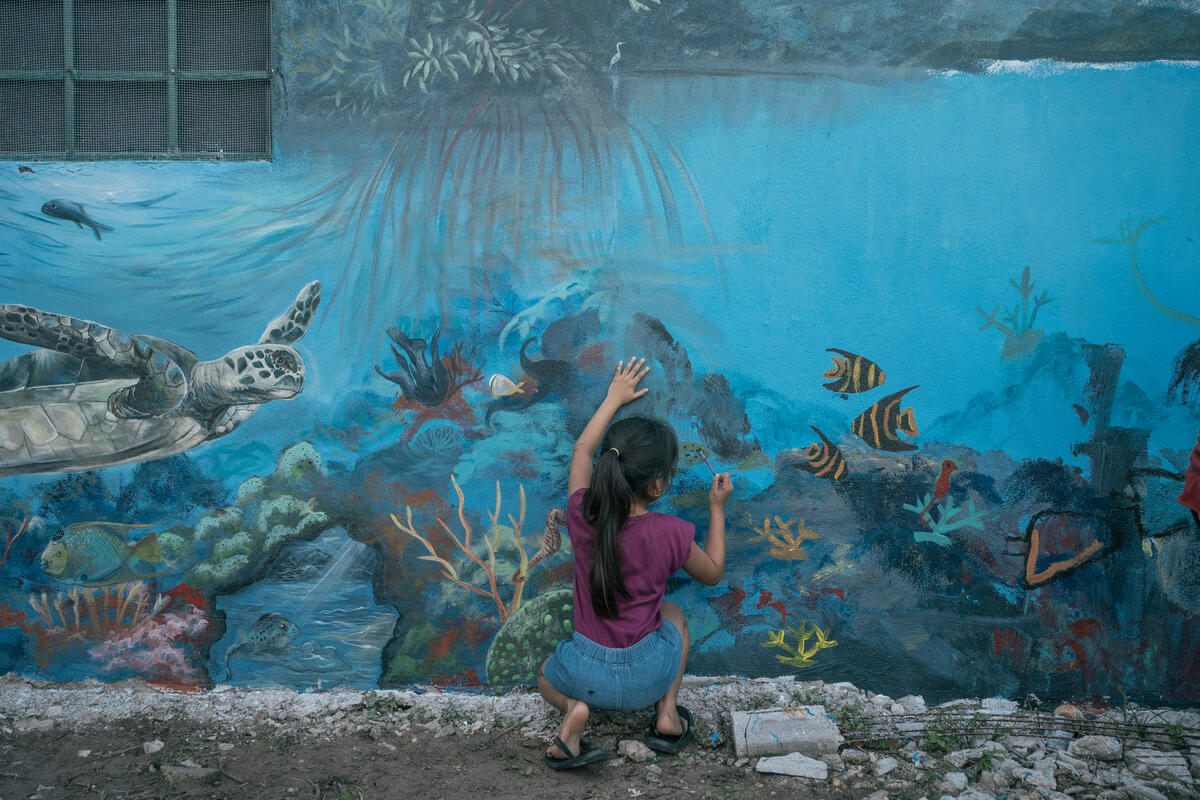SocPro4Fish Updates| Economic Inclusion

Welcome to the third issue of the SocPro4Fish Updates for this year! In this edition, we are going to focus on social protections, a tool for economic inclusion in the fisheries and aquaculture sector. Economic inclusion1 is at the forefront of the social protection agenda, and a concept increasingly recognized and developed by policymakers, non-governmental organizations (NGOs), and development partners at large. It's also integral to achieving Sustainable Development Goal (SDG) target 10.2, which aims to "empower and promote the social, economic, and political inclusion of all, irrespective of age, sex, disability, race, ethnicity, origin, religion, or economic or other status" by 2030.
The Food and Agriculture Organization of the United Nations (FAO) recognizes it as one key pillar to eradicate extreme poverty, foster more equal societies, and reduce disparities between urban and rural areas. Through concrete country experiences and FAO projects and publications, we will examine strategies to foster economic inclusion and social protection in this sector.
PARAGUAY
Alternative livelihoods in PARAGUAY
In Paraguay, the SocPro4Fish project developed a feasibility study centered on a portfolio of potential alternative livelihoods for fishers during closed seasons, and beyond. This study, and alternative livelihoods, seek to diversify fishers' sources of income and improve their economic resilience.
Firstly, the study proposes a project to produce Pacú (Piaractus Mesopotámicus) and tilapia (Oreochromis niloticus) through aquaculture, aiming to meet existing demand for these species while supplementing the supply from fishing. This alternative based on aquaculture has the potential to generate employment for local communities and provide an alternative livelihood that may decreases fishers’ vulnerability to fisheries resource variability.
Secondly, the feasibility study identifies several activities as alternative livelihood options for fishers, including tourism in fisheries areas, eco-tourism, entrepreneurship and agriculture, handicrafts, gastronomy, livestock production, and integrated farming. These alternatives offer benefits in terms of skills diversification, risk reduction and community resilience building. Moreover, they can increase fishers’ income, access to new markets, enhancing financial stability, and contribute to the local economy.
TUNISIA
The evolution of blue crab fisheries and the livelihoods of Tunisian fishers
In Tunisia, in 2014, a national management plan for the invasive blue crab species "Portunis segnis" was developed in the Gulf of Gabès, the main nursery in the Mediterranean Sea. An invasive species introduced into the Mediterranean through the Suez Canal, the blue crab threatened the artisanal fishing techniques used along the Tunisian coastline, specifically damaging the gillnets and traps.
Beyond the advancement of fishing techniques in Tunisia, FAO has assisted the government in developing a complete value chain within this niche market. Good governance of fishing, that allows fishers to catch crabs of good quality while respecting the environment, has facilitated the marketing of the blue crab locally and internationally. As a result, it allowed fishers to diversify their income sources and added value to an invasive species. Read the human story, news, and good practices.

©Valerio Crespi
COLOMBIA
Women's Livelihoods: Fish By-Product Processing in Tumaco
In Colombia, particularly in Tumaco, efforts such as the processing of fishing by-products have emerged as viable livelihood options for women in the fishing industry. For instance, the "Association of the Family of Pioneer Seasoners of Rendering" - ASOFALIPRE has successfully transformed non-edible fish parts into valuable products like Collatina, a collagen-rich substance for human consumption, derived from fish scales. Additionally, they utilize various parts of the fish, such as the stomach and gonads, in preparing traditional dishes like encocado, thereby enhancing food security and sovereignty. These endeavors not only promote economic inclusivity but also fortify social protection through income diversification, ultimately enhancing community resilience. More information on FAO Colombia
MALAWI
Expanding coverage to the informal sector
Under the "Boosting Livelihoods Resilience, Response and Recovery from COVID-19 challenges in Southern and East Africa" project, FAO supported the Government of Malawi expanding social protection coverage to the informal, fisheries sector by facilitating the institution of Village Savings and Loans Groups and delivering training on social protection to representatives of communities, local government, and community-based organizations. These groups play a role in promoting economic inclusion by offering microcredit and savings opportunities to those who are often excluded from formal financial services due to low income, lack of assets or lack of necessary documentation. This initiative enables informal fishing workers to access vital financial services and social protection. Moreover, in collaboration with ILO, FAO rolled out a study to assess the feasibility of expanding social protection to the fisheries sector and developed a policy brief containing recommendations for the Government to engage in this agenda. More information on FAO Malawi.
PHILIPPINES
Transforming the face of agriculture: promoting socio–economic inclusion in the Philippines
Catanduanes, a fishing-dependent province in the Philippines, was hit by the COVID-19 pandemic and Super Typhoon Goni in 2020, severely impacting the local fishing community. In response, FAO worked with the provincial government to test anticipatory action and deliver urgent assistance through the social protection system, with a focus on economic inclusion in the fisheries sector. This initiative was part of the project “Transforming the face of agriculture: promoting socio-economic inclusion” (2019-2023). Innovative strategies included the simulation of cash-based anticipatory action and the establishment of a multi-channel fund disbursement system with partners. Capacity building improved risk awareness and coordination. These interventions supported recovery and contributed to long-term socio-economic progress in Catanduanes by strengthening economic resilience and livelihoods in the fisheries community. More information on FAO Philippines

PUBLICATIONS
Economic inclusion and social protection to reduce poverty
This action sheet highlights the direct and indirect impacts of the COVID-19 pandemic on the fisheries and aquaculture sector, including health effects on workers and disruptions to trade and markets. These challenges exacerbate existing vulnerabilities, particularly for women, and underscore the need for inclusive, gender-responsive policies to mitigate poverty, and food insecurity, and promote sustainable development goals such as no poverty, no hunger, and gender equality within the sector. Read the action sheet.
The contribution of social protection to economic inclusion in rural areas
This 2020 report examines how social protection initiatives contribute to economic inclusion, emphasizing its importance in reducing rural poverty and achieving sustainable development goals. It discusses the need for integrated, long-term approaches and explores the interplay between economic inclusion, social protection, and climate change adaptation in rural areas. Read the report
Strengthening coherence between social protection and fisheries policies
The FAO's Framework for Strengthening Coherence between Social Protection and Fisheries Policy offers a strategic approach to synergize fisheries policies with social protection for poverty reduction, hunger elimination, sustainable natural resource management, and climate resilience. By analyzing country case studies, it highlights the benefits of policy coherence and outlines actionable steps for operationalizing such coherence. This includes developing supportive policy environments and programmatic strategies that enhance synergies and manage potential trade-offs. The Framework specifically addresses how these integrated approaches can promote economic inclusion, providing clear examples and guidance for implementation. Read the framework
Enhancing Fishers Livelihoods through Social Protection
This blogpost underscores the role of social protection in improving the livelihoods of fishers, addressing challenges like poverty and vulnerability, and promoting sustainability in fisheries management. Through examples like the Seguro-Defeso program in Brazil and initiatives in Buenaventura, Colombia, it illustrates how social protection measures can provide income security, decent work, and economic inclusion, ultimately contributing to the well-being of fishing communities worldwide. Read the blog
